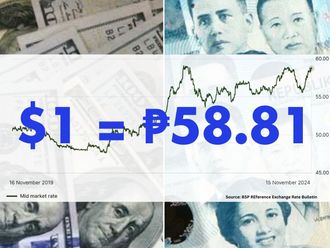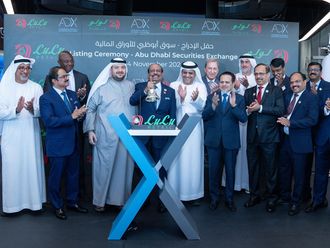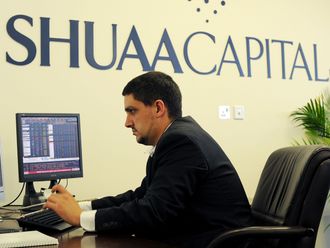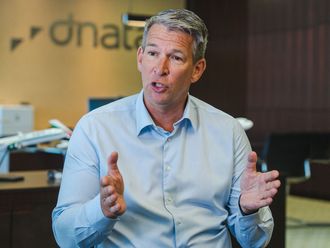Abu Dhabi: The UAE stock market regulator said yesterday it has dropped an inquiry into share-manipulation allegations against Dubai-based investment bank, Shuaa Capital.
The Emirates Securities and Commodities Authority (Esca) said it had contacted the Kuwait stock market and been told that there was no wrongdoing in Shuaa's 2005 purchase of a stake in Kuwait's Al Ahlia Investment in 2005.
"We have no jurisdiction because it comes under the Kuwait Stock Exchange, so we will drop the probe," Maryam Al Suwaidi, Esca manager for issuing and disclosure, said.
Shuaa, the largest investment bank by market value in the UAE, denied any wrongdoing.
Esca said in February it would contact the Kuwaiti stock market to seek more information on allegations published in Paris-based Trends magazine that Shuaa manipulated the price of the Ahlia share purchase.
"We wrote to the Kuwait Stock Exchange and we got a response verbally saying there was nothing wrong against Shuaa," Al Suwaidi said.
In an interview on Tuesday Shuaa's CEO Iyad Duwaiji said the company had received no request for further details of the transaction from the emirates' regulator after Trends published its report in February.
"The regulator has not sent us anything, has not demanded more information, has not started an investigation," Duwaiji told the Reuters Middle East Investment Summit in Dubai that ended yesterday.
"They just asked for clarification which we have provided to them and we have not heard anything else," he added.
Magazine talks of an undisclosed agreement
Paris-based Trends magazine said in its February edition that Shuaa had entered into an undisclosed agreement with Ahlia for a refund of part of the purchase price of 25.8 million dinars ($89.21 million).
Under the terms of the deal, Shuaa agreed to buy the Ahlia stake at 410 fils per share, Trends said. The purchase price announced was 480 fils per share, which Shuaa paid. Ahlia then refunded the difference, the magazine said. There are 1,000 fils in a Kuwait dinar.
Regulators are trying to improve transparency and attract more foreign institutional investment to the Gulf, which had five of the six worst-performing markets last year among 81 tracked by Birinyi Associates, a US research firm.












